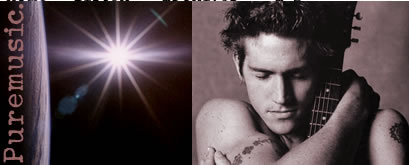 |
|||||||||||||
A Conversation with Ben Taylor (continued)
PM: I was interested that there was a really strong herb song and a strong mushroom song on the record, to say like, "This guy, if he's about this, he just sings right about it." It's beautiful.
BT: Thanks very much. I believe pretty strongly in people's right to be able to, A, unwind, and B, relax and inspire themselves in any way that they see fit. And the more organic, the better, as far as I'm concerned.
PM: Right.
BT: I think it's the natural inclination of humans to need to experience altered states of consciousness. And as I say in "Let it Grow," I think it's unfortunate that the only societally condonable means of removing oneself from our ordinary state of consciousness is the most poisonous.
PM: You mean alcohol.
BT: Yeah.
PM: Yeah. That ain't right.
BT: It's hard, man. I mean, I myself had to stop smoking pot for the tour because I had to sing so much. But it had always been something that I never, ever drank before this tour, and I've been drinking a little bit, and it's not nearly as good for me. I can feel it.
PM: Yeah. Drinking liquor or drinking beer?
BT: Mostly beer, but from time to time I'll have a little liquor. Depends on the day and the circumstances.
PM: Yeah. You signed your name on my CD, and in an open letter I saw on the Internet, both, "With respect." I thought that that said an unusual thing for an artist, especially a young artist.
BT: Yeah? Why, do you find that most young artists are disrespectful?
PM: Not that. I just don't see them incorporating it in their signature, thinking enough about it, and--how shall I say--thinking enough of respecting others to say so.
BT: I think that it's so important in human relations that it's one of those things that should be taken for granted almost--like I wish that we could just take it for granted that everybody respected everybody immediately when we ran into each other. Unfortunately, it just doesn't happen.
Wow, this is very funny. I'm in a piano bar, and this pianist is hooking up to one of my mom's songs that's way obscure.
PM: Really?
BT: Yeah, I wouldn't have expected it. [to the pianist] "Let the River Run"?
Pianist: Yeah!
BT: Wow.
PM: [laughs]
BT: That's very, very funny.
PM: Wow, that's a beautiful thing.
BT: Yeah. That's never happened before. I mean, I've definitely been sitting in places where the pianist has been playing one of my parents' songs, but never that one before.
PM: [laughs] So you make a record for Sony, and it gets swept under the corporate rug. Did you seek another major label deal before releasing your next record independently?
BT: No way, man. No, it took the twisting--very much twisting of my arm just to get me back in the studio in the first place.
PM: Really?
BT: And it took twisting of the arm but also the promise that we were not going to go corporate with it no matter what.
PM: Because that was so debilitating, so derailing?
BT: No, it wasn't so much that it injured me as a human being or as an artist, it was just that it put a terrible taste in my mouth for corporate America, and it let me understand how and why for centuries art and business have been clashing in the most horrible way.
PM: And how rarely they meet in the middle with any substance.
BT: Yes. Invariably, artists are always poor because they spend all their time creating art and have minds for art. And businessmen are always rich because they have minds for business, and they have the wherewithal and the patience to succumb to a system where they have to satisfy investors on a quarterly basis. And basically, that's what it boils down to, from Michelangelo to Britney Spears. It comes down to the fact that art cannot be quantified on that kind of a level.
PM: Yeah.
BT: It just can't--it really doesn't work.
I can't believe this guy is playing that song. It cracks me up.
PM: [laughs] So does Iris Records intend to release or develop other artists? Is that in mind?
BT: We've been toying with the idea of it, because actually our business plan is going so well--or the thing that we said we were going to do we've kind of done. So we've been thinking that we might be in a position to be able to help other artists along the line. But right now we need to focus all of our efforts on just developing ourselves.
PM: Right. Yeah, you've got to get where you're going.
BT: Yeah, a hundred percent. continue
print interview (pdf) listen to clips